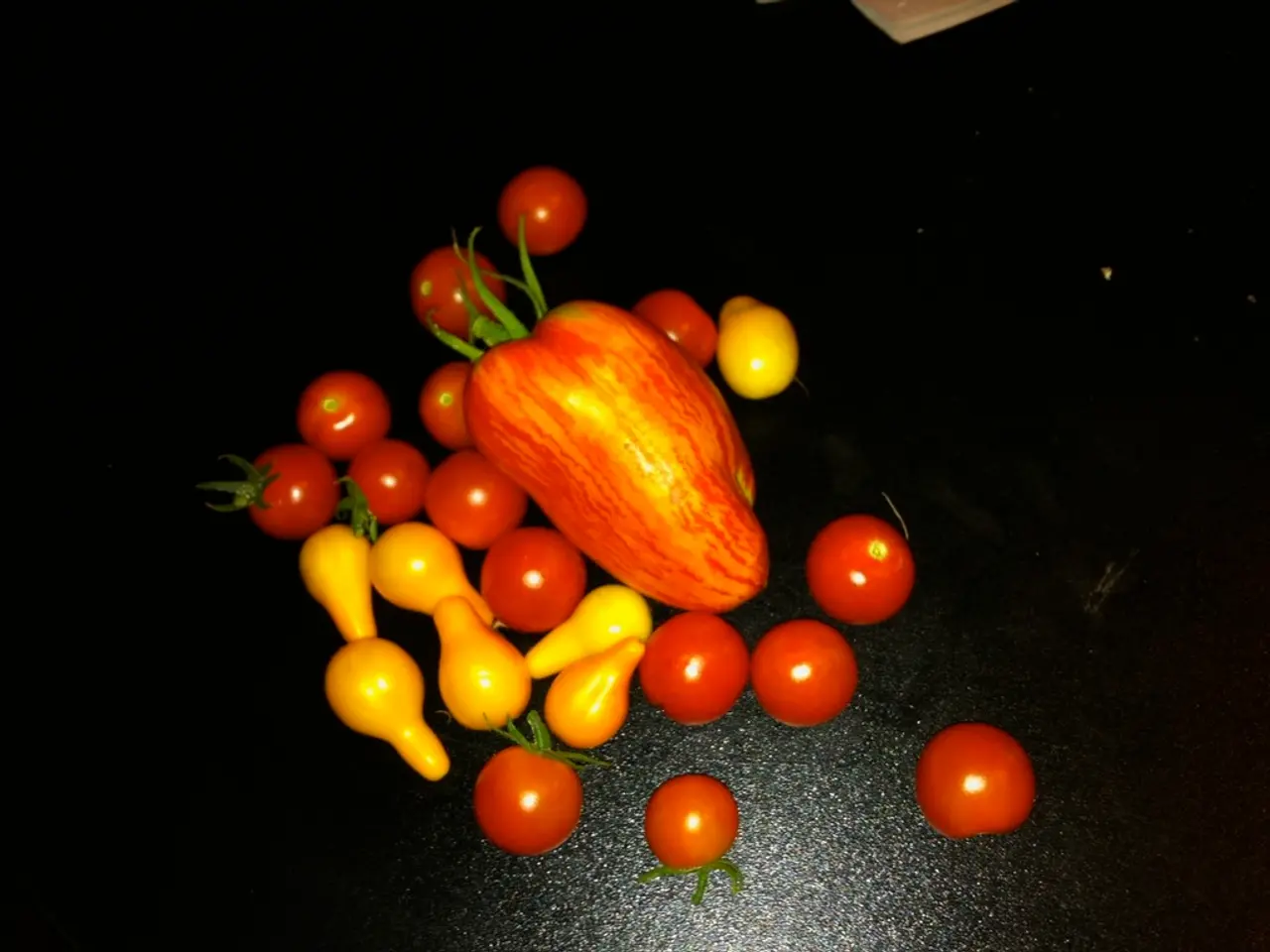Pregnancy-friendly fruits to consume and foods to steer clear of for expectant mothers
Pregnancy is a time when a woman's body requires extra care and attention, and her diet plays a crucial role in ensuring the health of both herself and her developing baby. A balanced diet rich in fruits can offer a range of specific benefits for both mother and child.
Fruits such as apricots, berries, bananas, oranges, mangoes, pears, avocados, grapes, apples, dried fruit, cherries, and watermelon are all excellent choices for pregnant women. Each fruit offers unique nutritional benefits that support the mother's health and aid in the baby's development.
Apricots, for instance, are high in fibre, which can help alleviate pregnancy-related constipation. They also contain vitamins A, C, E, beta carotene, and minerals like iron, which help prevent anemia, and copper, magnesium, and manganese for metabolic health.
Berries, such as blueberries, strawberries, and raspberries, are packed with antioxidants, vitamins, and fibre, supporting a healthy immune system and digestion.
Bananas provide potassium, vitamin B6, vitamin C, and fibre, which can help ease constipation and reduce early pregnancy nausea.
Oranges are rich in vitamin C and folate, which are essential for a growing fetus. Vitamin C enhances iron absorption and boosts immunity, while folate is crucial for preventing neural tube defects and supporting brain and spinal cord development in the baby.
Mangoes offer vitamins A and C and beta-carotene, which aid the baby's vision, immune system, and skin development.
Pears are a good source of dietary fibre, helping maintain healthy digestion and prevent constipation.
Avocados contain healthy fats essential for the baby's brain and eye development, as well as folate, potassium, magnesium, and carotenoids that may reduce birth defect risks and help manage pregnancy-related high blood pressure (preeclampsia).
Grapes provide antioxidants, fibre, and vitamins C and K, supporting overall maternal and fetal health.
Apples supply dietary fibre and vitamins A and C, which promote digestion and support mother and baby health.
Dried fruit offers concentrated nutrients and fibre, aiding digestion and providing quick energy. However, pregnant women should consume dried fruit in moderation and avoid candied fruits due to their high sugar content.
Cherries are high in vitamin C, melatonin, and antioxidants. Melatonin helps with cell growth and promotes good sleep, while antioxidants reduce inflammation and support immune function.
Watermelon is hydrating and contains vitamins A, C, and antioxidants, which help maintain immune health and hydration during pregnancy.
It is essential to remove any pesticides and bacteria that might be present on fruit by washing it thoroughly before eating it. Other safety precautions include removing areas of bruised fruit, storing fruit in a separate area of the fridge to any raw meat products, avoiding precut melons, and only drinking pasteurized or boiled fruit juice.
In conclusion, eating a variety of fruits during pregnancy offers vital nutrients such as vitamins A, C, folate, potassium, fibre, healthy fats, and antioxidants that support fetal development, maternal immune function, digestion, and prevention of pregnancy complications like anemia and preeclampsia.
- For pregnant women, apricots, rich in fibre and vitamins A, C, E, beta carotene, iron, copper, magnesium, and manganese, can help alleviate constipation and support metabolic health.
- Berries like blueberries, strawberries, and raspberries, packed with antioxidants, vitamins, and fibre, can support a healthy immune system and digestion during pregnancy.
- Bananas, offering potassium, vitamin B6, vitamin C, and fibre, can ease constipation and reduce early pregnancy nausea.
- Oranges, which are rich in vitamin C and folate, are essential for a growing fetus as they enhance iron absorption, boost immunity, and prevent neural tube defects.
- Mangoes, with their vitamins A and C and beta-carotene, aid the baby's vision, immune system, and skin development.
- Pears, a good source of dietary fibre, can help maintain healthy digestion and prevent constipation during pregnancy.
- Avocados, containing healthy fats essential for the baby's brain and eye development, folate, potassium, magnesium, and carotenoids, may reduce birth defect risks and help manage pregnancy-related high blood pressure.
- Grapes, providing antioxidants, fibre, and vitamins C and K, support overall maternal and fetal health during pregnancy.




